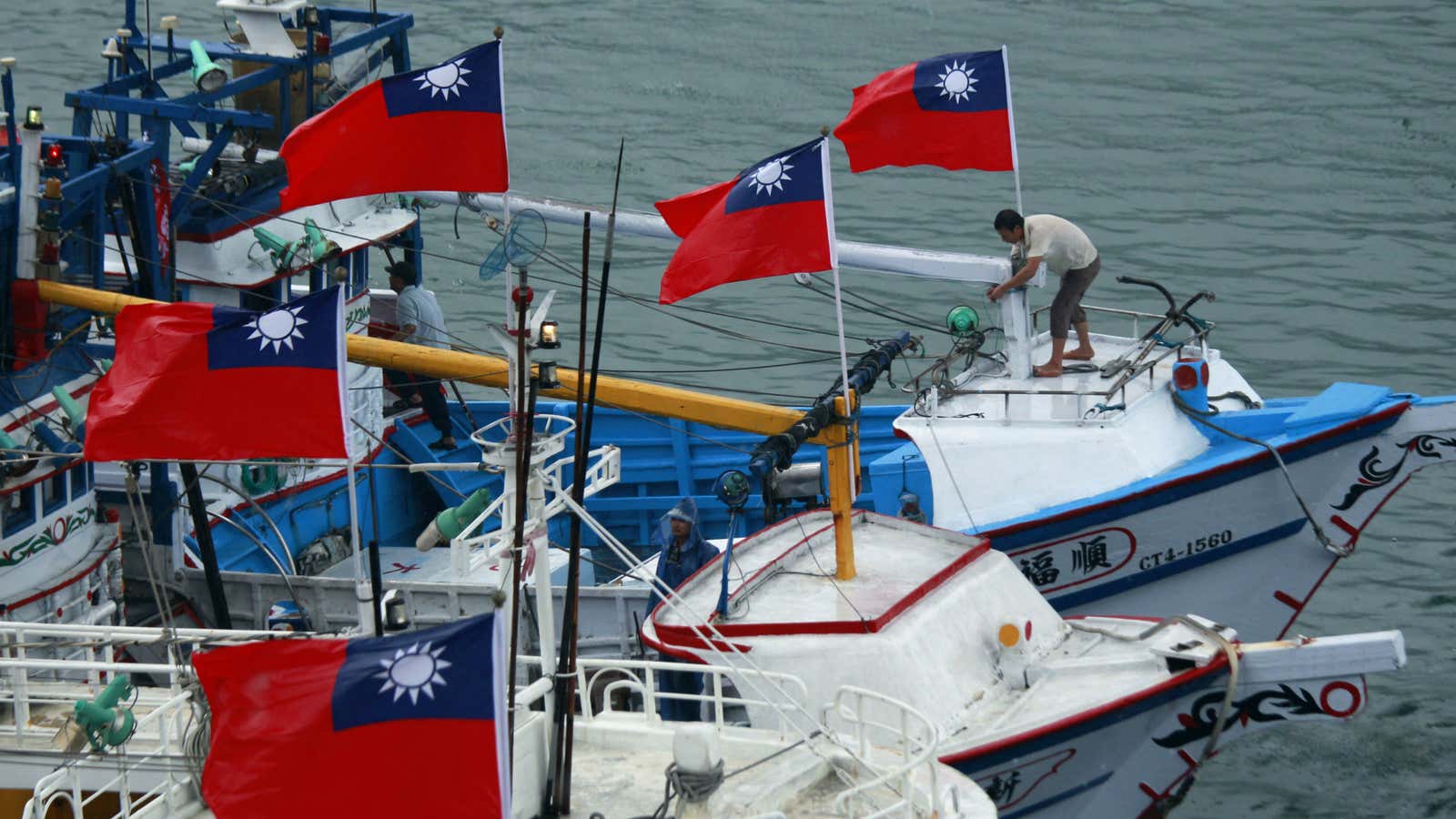Whose side is Taiwan on? The tiny self-governed nation, over which Beijing asserts sovereignty, has waded into the dispute over a small group of islands in the East China Sea. Known as Senkaku in Japan and Diaoyu in China, both nations claim them.
Yet so does Taiwan. This afternoon, a flotilla of Taiwanese fishermen, with the support of the Taiwanese coast guard, set off to the islands to stake sovereignty. Taiwan, whose people have an almost spiritual appreciation of sashimi, views the islands as important fishing grounds and also thinks it may have owned them at some point. One Taiwanese academic argues that while the islands probably belong to China, Taiwan also laid claim to them back in the 19th century before it was itself briefly colonized by Japan.
But Taipei also seems to be supporting Beijing implicitly by heavily criticizing Japan’s purchase of some of the fought-over territory while declining to comment on China’s competing claims. At a recent march in Taipei, organizers called on Taiwan and China to work together to protect the islands from Japanese rule, according to a report in a pro-Beijing Taiwanese newspaper.
In a statement in early September, Taiwan’s ministry of foreign affairs said Japan has no legal claim to the territory without laying out any position on mainland China’s efforts to seize it. “… as early as 1403, the Diaoyutai Islands were mentioned in the Ming Dynasty record,” the ministry said. “Subsequent Chinese and foreign maps charted in the 18th and 19th centuries also included the Diaoyutai Islands as Chinese territory.”
Taiwan, however, insists it is not working jointly with Beijing and that it simply wants to broker peace in the East China Sea.
If that is not the case, the US should be worried.
China and Taiwan are frenemies. They do not cooperate on military matters. China has more than 1,000 missiles pointed at its smaller neighbor—just in case it takes its independence for granted. Back in May, China may have even been testing those missiles.
Still, Taiwanese president Ma Ying-jeow won the last two elections on a platform that encouraged greater economic cooperation with China. Some observers have interpreted this to mean Ma will accommodate Beijing however possible.
China is also becoming a major source of inward investment and tourism for Taiwan. Taipei also might become an offshore trading center for the Chinese renminbi.
“The unspoken fear in the US is that there is going to be a commonality between Taiwan and China on strategic issues,” says Wendell Minnick, Asia bureau chief of Defense News, in an interview with Quartz.
The US government is fearful of rattling Beijing by paying its plucky island neighbor too much attention, and reportedly supported Ma in Taiwan’s national elections in January.
But North America also does not want Taipei and Beijing to get too close. Taiwan sits in the midpoint of a long chain of islands surrounding mainland China,which also include Vietnam and the Philippines. The chain is mainly comprised of US allies and creates a kind of buffer against China extending its military reach. If Beijing held Taiwan, it could use its small neighbor as a launchpad for sea and airassets to reach Japan.
Anything even approaching such cooperation could seriously compromise security in the South China Sea. Taiwan is tiny and often overlooked, but it matters.
